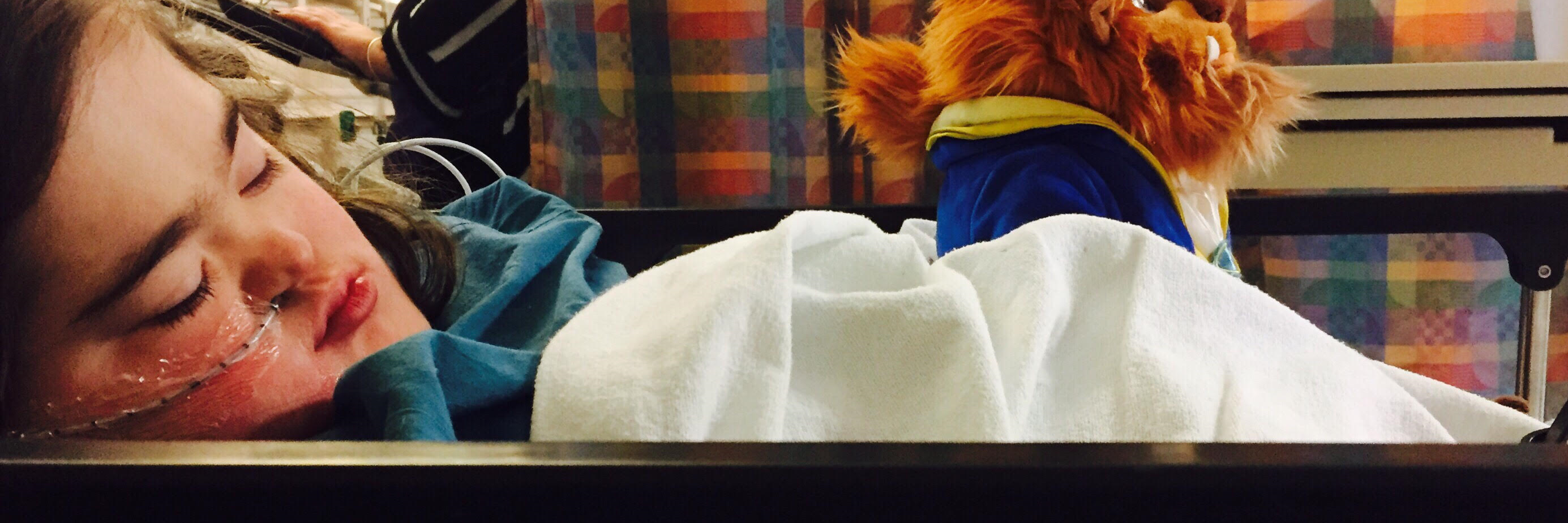My daughter, Jaycee, may not be able to verbalize much but she is keenly aware when we are in St. Louis and will be going to the hospital.
Her responses vary as we pull into the parking garage. Sometimes, Jaycee has refused to get out of the vehicle once parked. She shakes her head no. She signs, “Doctor. Hurt. Scared.” I pull out the pain scale cards I made to help decrease anxiety related to routine hospital visits. I show her the pain will be 0-1 as she will only see a doctor and go back home. Even though nothing bad will happen, I struggle to reassure her properly.
Her 11-year-old body is too big for me to muscle out of the van, so I wait for her to move. I praise her when she bravely steps out of the vehicle. Sometimes I must keep up my motivational speeches and encouragements as she may hesitate two or three more times during the walk to the doors of the hospital.
I understand her reservations. She has been through eight surgeries and has had over 30 hospital admissions. Down syndrome has accounted for some of her difficulties like obstructive sleep apnea and her AV canal heart defect. But, there are many issues unrelated to Down syndrome such as asthma, a lung cyst, Wolff-Parkinson White syndrome and GERD. She’s had many emergent situations that have landed her suddenly in the hospital. There was no time to sit and prepare her for what was happening. She was at the mercy of the hospital staff who worked quickly to stabilize her.
During past illnesses, Jaycee has needed things like IVs, PICC lines, central lines, oxygen, a ventilator, a catheter, an NG feeding tube and frequent breathing treatments. Some of her admissions have been serious and complicated.
There were a few times she was so sick she allowed medical staff to treat her without protest. Most of the time though, Jaycee has met attempts at treatment with swats, kicks, screams and tears. Her limited verbal skills make it difficult for her to ask questions about what is happening to her and express her feelings. Instead, her thoughts are clearly expressed through understandable acts of resistance. Her father and I try to tell her what will happen. We try to calm her, but our efforts are not effective until the present medical intervention, such as an IV, is completed.
Clearly, hospital admissions are traumatic for Jaycee. Whenever she is discharged and we start to head home, there is a visible difference in Jaycee’s countenance, and she is happy to be headed home.
All those negative emotions flood back when we arrive at the hospital for a routine appointment. Her PTSD as a result of hospitalizations is a problem no doctor ever warned me about. This is the emotional side of medicine that is clearly not being addressed properly. A few times I have mentioned I have a hard time getting Jaycee inside for the appointment. Doctors make passing comments and move on.
One day was different though. After a longer than usual parking lot standoff, I broached the subject to a specialty doctor when I said, “Jaycee may need to start taking some sort of medication for me to get her into these appointments.”
The doctor smiled and said that probably wasn’t necessary but wanted to hear more. After I described her reactions to merely arriving at the hospital, the doctor said, “I don’t understand why she would be so upset.”
Really?
I understand my daughter’s emotions, I’m the one by her side watching things unfold time and time again. These scenes have given me nightmares, caused me anxiety and brought irrational fears to my mind; and I am merely an observer. I am not the one who feels the pain of the sickness and the interventions, so I’d imagine her emotional reactions would be much worse than mine.
After some dialogue, the doctor and I planned for the next appointment so that Jaycee’s stress level can be decreased.
Of the six specialists who see my daughter, none have asked me how her health issues and past admissions have affected her emotional and mental health. Perhaps, this is standard for every child, but I do wonder if her intellectual disability makes it easier for doctors to ignore. Just because she can’t verbalize her traumatic experiences doesn’t meant this isn’t a problem. Her behaviors tell her story.
There’s something missing in my daughter’s care, and I’m going to help change that. I wonder how many other moms out there are in this situation, wondering what to do with their frightened child going in for a simple doctor’s appointment. I’m hoping to start a conversation on this topic so children like mine can get better support.
Follow this journey on A Special Purposed Life.

